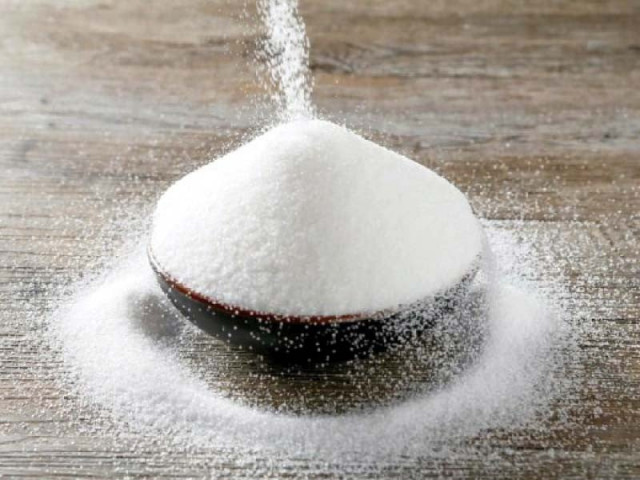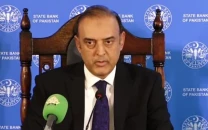Sugar exports must be allowed
If government delays decision any further, it will face a triple whammy

Economic policy making is about trade-offs and each decision leads to winners and losers. The criteria should be greater economic benefit for society, which economists define as economic surplus. The pending decision to allow sugar exports is a case in point.
It’s a no-brainer that after increasing the minimum support price of sugarcane by 30%, the retail price of sugar will increase by at least the same percentage, even if nothing else changes. The added complexity is the unsold stock of sugar, which is delaying the crushing of sugarcane this year.
Even if the government does not allow the export of this surplus stock immediately, the increase in the sugarcane support price implies that a price hike will follow in the beginning of 2023. If the government delays the decision to allow the export of sugar any further, it will face a triple whammy.
One, the price of sugar will increase in any case. Two, falling prices in the international market will mean loss of export earning opportunity. Three, sugar mills will delay paying sugarcane growers, thus causing a liquidity crisis for farmers and a late start of the wheat sowing season.
An incentives-based structure can bring efficiency and end cyclical distortions in the sugar sector.
Pakistan’s sugar sector has an excessive government footprint and intrusive regulations have distorted the incentive structure. Every aspect of the supply chain, from the pricing of sugarcane to the retail price of sugar, from the establishment of mills to the trade of commodity, are all directly or indirectly influenced by the government.
PRIME Institute’s latest report “Reforming State Market-Nexus in Pakistan’s Sugar Sector: Analysis, Recommendations and Roadmap” highlights several problems prevalent in the sector and provides policy actions to mitigate the crisis.
In this article, we will talk about three government regulations that have contributed significantly to the inefficiencies.
First is the Minimum Support Price (MSP). The rationale behind introducing MSP was to protect farmers and encourage them to increase sugarcane cultivation.
However, MSP does not discriminate between a progressive farmer and an ordinary farmer. The inefficient farmers have no incentive to improve their quality of crop or upgrade their farming practices.
In contrast, efficient farmers who invest more in the crop by using better quality seeds, fertilisers and adopt modern techniques also receive the same returns.
The quality of crop has remained low, which is illustrated by the fact that sucrose recovery increased from 9.3% in 2011 to 9.8% in 2021; whereas sucrose recovery in India is around 11.5% and in China is 13%. Second is the restriction on the trade of sugar, which often contributes to shortages and price fluctuations, because of a higher increase in consumption as compared to production. The current restriction of export is hurting the entire sector.
Furthermore, the restriction on the import of refined sugar, especially at a time of low production of sugarcane and higher demand for sugar in the country, can lead to significant price hikes.
Thirdly are the administrative controls put in place by the government to keep prices stable. The intention behind price controls is to provide relief to the consumers; the problem, however, is that household consumption of sugar is only 20% while industry consumption is 80%.
Therefore, instead of protecting consumers, the government is providing relief to the industry.
As a regulator, the Competition Commission of Pakistan (CCP) has always suggested the government move away from price controls and let market forces determine the prices. Price controls distort the market mechanism through which supply and demand of the commodity settle prices and prompt retailers to defy government directives in this regard.
Consequently, sugar is not sold at the government-determined price which can be represented by the fact that the price of sugar ranges from Rs90 per kg to Rs120 per kg.
The resolution of structural problems in the sugar sector requires a multifaceted strategy from the government. The first and most important step for the government to take is to deregulate the sector and reduce its footprint.
The operation of the sector based on the supply and demand of the commodity will better equip stakeholders to make business decisions keeping in view market dynamics.
Moreover, the policy of the use of administrative controls should be rescinded and the price of sugar should be allowed to be determined by the supply and demand of the commodity.
The government needs to introduce an incentive-based mechanism in the sector to encourage farmers to improve the quality of crop by allowing higher returns linked to sucrose recovery greater than the country’s current average.
The protection of farmers could also be ensured by introducing a crop insurance scheme to secure farmers from natural calamities, especially floods which are becoming a recurring event.
The government also needs to increase farmers’ access to formal capital by providing low-interest loans without collateral to increase sugarcane cultivation.
The government needs to relax trade restrictions; the export of sugar and import of raw sugar should be open throughout the year without the requirement of approval from the government. The restriction on the import of refined sugar should also be relaxed at the time of low sugarcane production in the country.
With improved political stability, the government should take the risk of letting the retail price go up and strengthen the sugar value chain. If it does not take any action, it will be sowing the seeds of deeper crisis, leading to price hikes in any case while putting food security and industrial investments at risk.
The writers are affiliated with the PRIME Institute, an independent economic policy think tank in Islamabad
Published in The Express Tribune, November 28th, 2022.
Like Business on Facebook, follow @TribuneBiz on Twitter to stay informed and join in the conversation.



















COMMENTS
Comments are moderated and generally will be posted if they are on-topic and not abusive.
For more information, please see our Comments FAQ